Graham Reid | | 5 min read
Led Zeppelin: The Immigrant Song (alternate version)
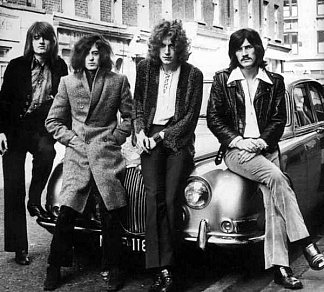
In all the words spilled about Led Zeppelin's classic Stairway to Heaven – a milestone or a millstone in popular music depending on where you stand, rock's national anthem, hippie vibe-meets-hard rock – it's often overlooked how obvious or inevitable it was in many ways.
Although Led Zepp are most often thought of as a hard rock band, they were also just as much a blues-based band and a folk group.
When Stairway was first aired – live in Belfast on March 5, 1971 – it was perhaps the sheer drama of the thing which captured the audience's attention, just as it did thereafter. It appeared on their Led Zeppelin IV album released eight months after that Belfast gig and they played it at every show after that day.
Here was a landmark which had elements of the folk, blues and rock which had been their platform. Guitarist Jimmy Page – who'd been working on Stairway for months before it was first heard – called it the song that “crystallised the essence of the band”.
At one level it is a folk song: Robert Plant was a fan of Tolkien, Anglofolk groups like the Incredible String Band and was reading Magic Arts in Celtic Britain by Lewis Spence at the time, hence the references to “the piper” and the “May Queen”.
But there's also a powerful blues element in the central passages and of course by the crunching closing segment, for which Page deployed his customised double-neck guitar, it is a full blown rock song.
Just how much Stairway was a climax to years of the band working all these elements is revealed when you revisit their first three albums spanning early 69 to late 70.
Those albums have been newly remastered by Jimmy Page and now come with an extra disc of addition material, mostly rough mixes and live versions. Given the Zepp catalogue was given an earlier remastering for the four-CD box set in 90 and there has been the Mothership compilation (CD and CD+DVD versions), fans might be feeling a little milked out.
So let's put commerce aside and concern ourselves with art, then look at whether the extra material justifies any reinvestment.
_front_cover_1.png) From their formation in 68 out of the
ashes of the Yardbirds (and briefly the New Yardbirds) in which Page
had played guitar, they drew heavily on blues and on their
self-titled debut album they covered – reinterpreted and ramped up
might be a better description – material by Chicago bluesman Willie
Dixon (1915-92).
From their formation in 68 out of the
ashes of the Yardbirds (and briefly the New Yardbirds) in which Page
had played guitar, they drew heavily on blues and on their
self-titled debut album they covered – reinterpreted and ramped up
might be a better description – material by Chicago bluesman Willie
Dixon (1915-92).
Both Dixon's I Can't Quit You Baby (originally recorded by Otis Rush) and You Shook Me (recorded by Muddy Waters) had been occasional inclusions in the latter Yardbirds sets. You Shook Me had also appeared the previous year on Truth, the debut album by another former Yardbirds guitarist Jeff Beck, with Rod Stewart on vocals.
But there were also folk elements on that album too: Page's instrumental Black Mountain Side (which was something of a rip-off being based on Bert Jansch's Black Waterside) and Babe I'm Gonna Leave You which was originally a folk song from the 50s which Page had heard Joan Baez do.
Some have suggested the brittle and noisy Communication Breakdown owed a nod to original rock'n'roller Eddie Cochran's Nervous Breakdown.
Led Zeppelin, and Page in particular, were musical magpies . . . and Dazed and Confused is a straight steal (with lyrical revisions) from the song of the same name by Jake Holmes who had opened for the Yardbirds, Page watching him from the wings.
But – as with Jimi Hendrix's debut of 18 months previous – here was an album (allegedly knocked out in 30 hours) which staked out a broad template of blues, folk and rock turned up to 11.
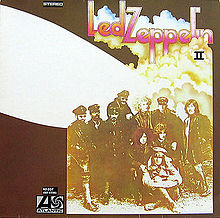 It would be territory they would continue to explore
and refine on their second album which appeared just eight months
later.
It would be territory they would continue to explore
and refine on their second album which appeared just eight months
later.
For Whole Lotta Love they again leaned on Willie Dixon (his You Need Love), but also in that sonic breakdown in the album version Page harked back to the psychedelic experimentation of the Yardbirds' Happenings Ten Years Time Ago, a rare recording where he and Beck appeared together. Dixon was borrowed again for Bring It On Home and Howlin' Wolf for their saucy Lemon Song.
Ramble On sourced Tolkien (referring to Mordor and Gollum).
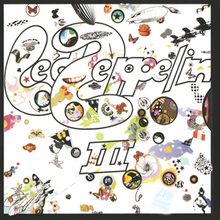 For Led Zeppelin III they went
directly to Huddy Ledbetter aka Leadbelly for Gallows Pole
(Gallis Pole in Leadbelly's version) and the folk gets a nod
with Hats Off To Harper (an acknowledgment of English folk
legend Roy Harper).
For Led Zeppelin III they went
directly to Huddy Ledbetter aka Leadbelly for Gallows Pole
(Gallis Pole in Leadbelly's version) and the folk gets a nod
with Hats Off To Harper (an acknowledgment of English folk
legend Roy Harper).
Add to these blues and folk elements the sonic weight and studio heft they could bring and you can hear how Led Zeppelin created something unique out of seemingly unrelated elements.
That's what makes listening back to the these first three albums such a fascinating experience, that and the sheer aural punch of many of these songs.
Of course by the time they got to Stairway to Heaven, they were writing highly original songs.
Or were they? For decades people have noted the similarity between that classic song and Taurus by the American band Spirit, who had previously toured with Led Zepp -- and whose songwriter Randy California has finally decided on a showdown in court.
Here's Spirit for the comparison, you be the judge and jury.
Taurus by Spirit, 1968
But back to those first three albums being riessued with previously unheard material. The additional tracks of those we have had an advance of are – frankly – a mixed bag. The live version Communication Breakdown recorded in Paris in 69 is of poor quality although sets some kind of land-speed record in Page's solo (and Plant sounds impossibly shrill and almost panic-stricken). You Shook Me from the same date is considerably better and more menacing than the album version, unfortunately it fades out.
Usually you can dismiss rough mixes – like a poorly assembled hamburger with some ingredients missing – but here they sometimes bring a more raw edge, as on Heartbreaker.
One of the great ignored Led Zeppelin songs is their take on Gallis Pole and the rough mix of Gallows Pole brings its blues elements and desperation even more to the fore, and the alternate mix of The Immigrant Song has a more treble/static edge.
However the rough mix of the central passage of Whole Lotta Love (see here) just sounds weird, thin and nowhere near as psyched-out as the finished version.
It's worth remembering Led Zeppelin albums were mostly dismissed or derided by the British and American music press at the time. John Mendelsohn in Rolling Stone wrote off the debut as “an album of weak, unimaginative songs” and said Plant was “nowhere near as exciting as Rod Stewart”.
Accusations of plagiarism would continue to dog them (on later versions of the albums the original writers' names were included alongside the band's) and whatever praise they won from critics was always tempered with dismissive comments. Like Lester Bangs on Led Zeppelin III who said his first impression was “the consistent anonymity of most of the songs”.
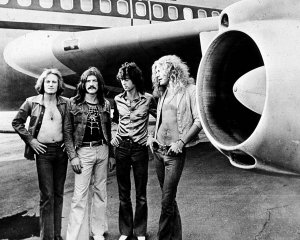 Well, critics are allowed to be wrong –
even the much vaunted Bangs who was often as wrong as he was right –
and the band's audience hardly cared.
Well, critics are allowed to be wrong –
even the much vaunted Bangs who was often as wrong as he was right –
and the band's audience hardly cared.
Led Zeppelin were the biggest band on the planet in the years these three albums cover and were flying to gigs in their hired plane which had a Hammond organ built into the bar.
Living well – in their case hedonistically – is the best revenge and now, 40 years on from these albums, people are still listening to them.
And the t-shirts are being worn by kids who parents were even too young to know the full firepower of Led Zeppelin.
Weird, huh?
Led Zeppelin have previously been "revisited" at Elsewhere here and at the end of that piece there are links to interviews with various members.

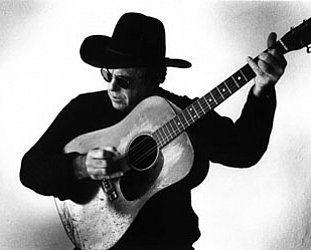
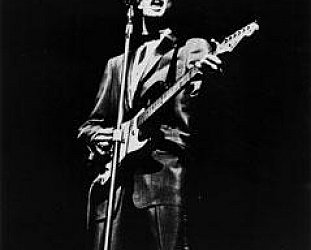

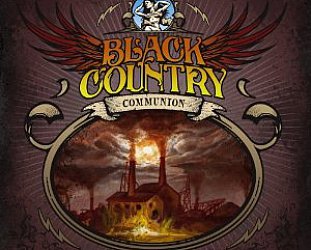
Keith Shackleton - Jun 3, 2014
I like Zep but I'm not sure I'll be rushing out for these new releases.. I might just bang on How The West Was Won, turn it up and throw away the knob!
Savepost a comment